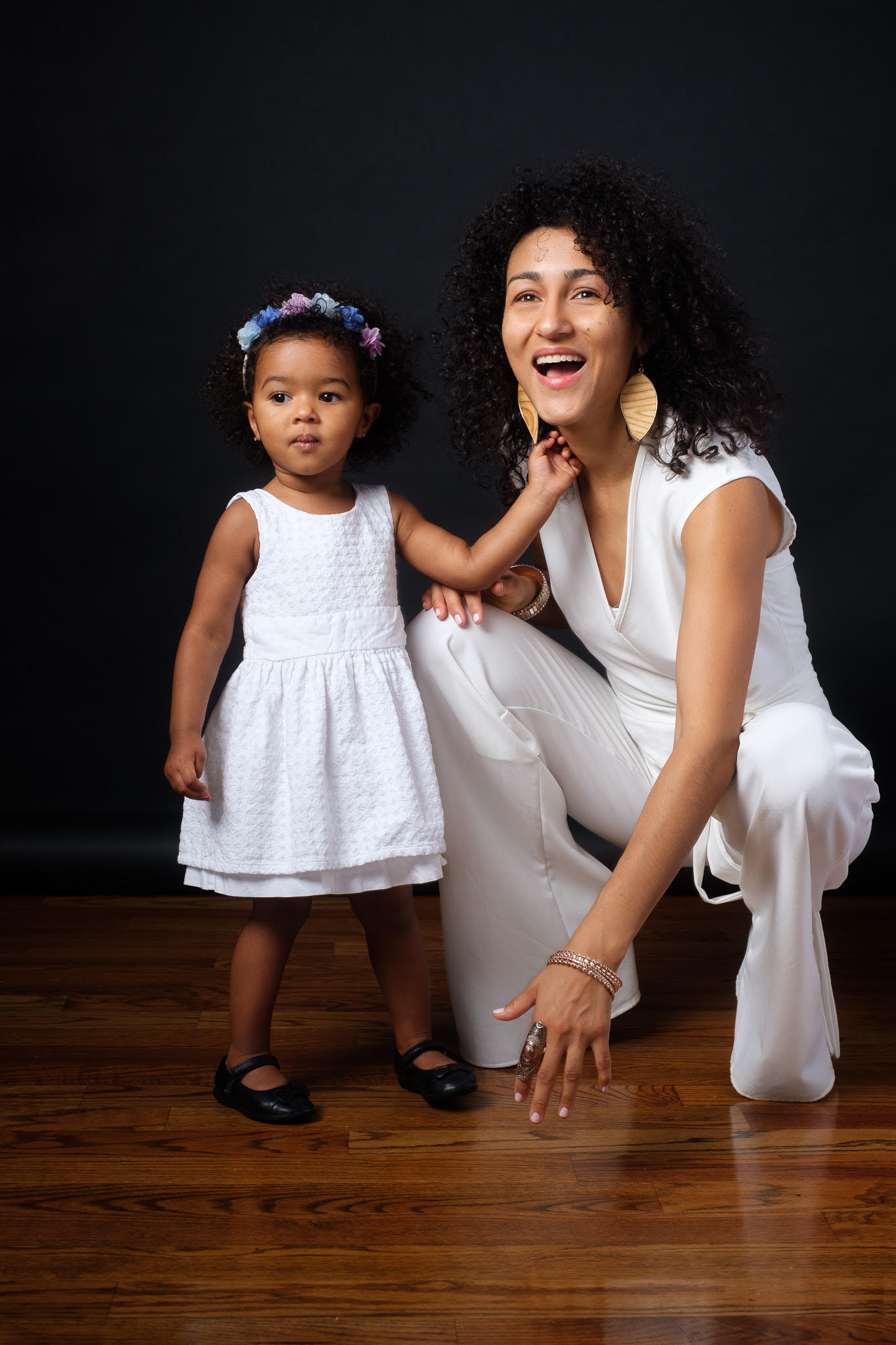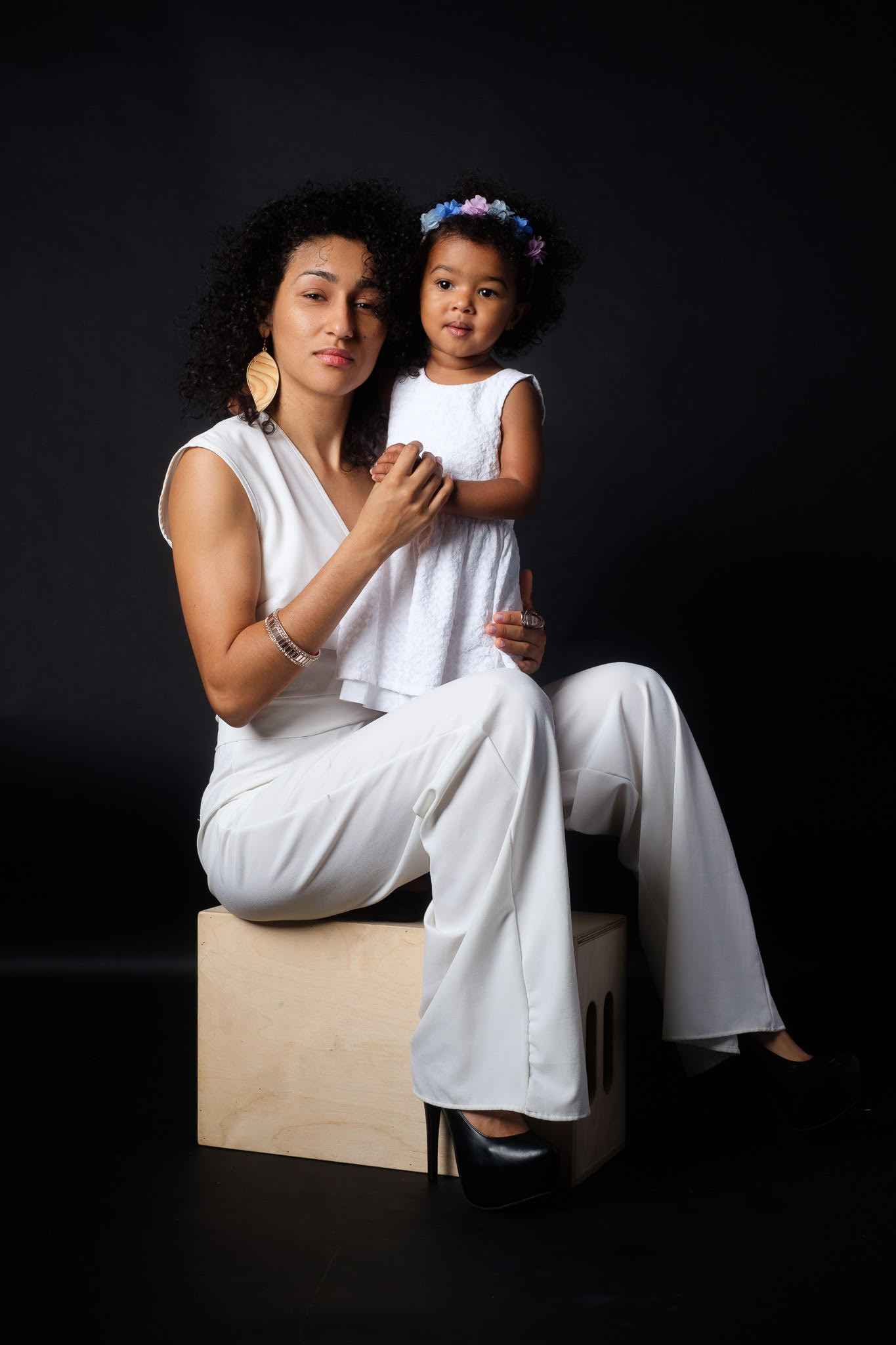
Source: Razzaq Manley / Razzaq Manley
Jessica Rodriguez is a Newark, NJ-based licensed clinical social worker, licensed clinical alcohol and drug counselor, pole instructor, yogi and most important, all-around cool mom. Her Instagram is rife with images of her adventures in fitness and motherhood. Jessica gave birth to her daughter in October 2016, just a couple of months after I did and I was in awe of, and even envied, her snapback journey at times.
From the outside looking in, Jessica’s body seemed to be handling motherhood exceptionally well. But all I saw was the physical aspect. There’s a lot that we sometimes overlook when it comes to the mental and emotional aspects of getting back on track after having a baby. For Jessica, dealing with a breakup and c-section guilt took a lot of work to push through. Jessica is a strong woman, literally and figuratively, so I was eager to chat with her when she mentioned that she struggled with c-section guilt. Here, we discuss her journey to acceptance and positive wellbeing.
MadameNoire (MN): What steps did you take to pursue prenatal care once you found out you were pregnant? Did you know what you wanted to do in terms of going to an OBGYN or midwife?
Jessica Rodriguez (JR): I didn’t know a lot of things. Over the years I’ve done my own research. I’m a big advocate for sexual health, so I was aware of a lot of like reproductive health rights and stuff but going through it yourself, it’s new territory and when you’re pregnant—I think for the most part most women will agree, but I can only speak on my experience—you’re more sensitive [and] emotional.
I went to this particular gynecologist who was a male. I was seeing the midwife [at that practice] before him but she had left a few months before I found out I was pregnant. So, since I had been at this establishment for a while, I decided to stay and work with the OBGYN. I ended up changing my OBGYN at like 25 weeks or more because I just didn’t like him. I ended up being with a woman of color. She was great and her practice had midwives as well, and at that time I was learning more about the differences between midwives and OBGYN’s and what services they offer, and what experiences they have. I was also looking into things like having a doula, but learning all that stuff while you’re pregnant, and as the time is going fast, and you’re trying to manage working full-time job and take care of yourself, and then trying to make these decisions on top of—I was experiencing relationship problems too, that would eventually lead to our separation—I wasn’t in the best state of mind. Going through all that stuff was a lot. So all that to say is, I was with my OBGYN and then I find out my baby is in breech position, and they presented it in a way that was like, this is a not a good thing. My doctor was automatically like, “Okay, we can schedule you for a C-section,” and I’m just like, “Let me research a little bit more about this.”
I’m aware that people have given birth vaginally to babies in breech position. So I was researching more and I had to be my advocate because I went from a normal pregnancy to now high-risk, and this was like 34 or 35 weeks. I didn’t have any issues with high sugar, I didn’t have any issues with preeclampsia, I didn’t have any issues with high blood pressure. I didn’t have anything in my pregnancy other than my baby being in breech position. I told my OBGYN that I’d like a vaginal delivery and I wanted to know what my options were. She’s said, “I’ve had experience delivering breech babies, but I don’t really do that for first-time mothers,” and I didn’t understand that but I guess she
was speaking more from a liability perspective—you know, telling me about the higher risks of chances of injury of the baby and complications that can happen if I do a vaginal delivery.
I still wanted to know what my options were and I looked up something called ECV (External Cephalic Version). I wanted to look at my own doctors and everything. I got a referral for that and if hadn’t said anything I wouldn’t have gotten that. So I did end up going to someone to see if they could turn the baby manually at around 37 weeks but she didn’t turn. She remained in breech position so the doctor was like, “We’re just going to go ahead and schedule you for a scheduled C-section at 39 weeks,” so that was two weeks of me trying to figure out what the hell else I can do. I got a referral for a chiropractor to try the Webster Technique but the baby didn’t turn and I felt defeated.

Source: Razzaq Manley / Razzaq Manley
MN: If you want more children, having a c-section the first time around kind of marks you.
JR: You kind of feel like you went through an unnecessary procedure because now I’m in a position where it’s almost three years later, and I would like to have kids again but now I’d have to meet certain criteria to qualify for a VBAC (Vaginal Birth After Cesarean). It’s like if I don’t fit that then automatically it’s another c-section. This is not to say that C-sections are horrible. If absolutely necessary they can save your life or your child’s life, but in hindsight, I think about it and I’m just like, I probably could have had my baby vaginally and she probably would have been normal. The aftermath of the c-section is like, your body just went through a surgery, so even though I look pretty damn good, after delivery and after going through the surgery, my body is not the same. I mean, I don’t think it would be the same after a vaginal delivery either, but I feel like my body would have gone through its process to recover as opposed to a surgery, which is a lot more intense.
MN: Did you feel guilty?
JR: I felt guilty as f-ck! I was looking forward to going through the natural process of giving birth. I felt like it was like more of a rite of passage—not to say that I’m not a mom, but I still have to reconcile that feeling. You’re still a mom if you have a c-section and sometimes it could be ridiculous to think that you didn’t go through the rite of passage.
MN: That’s real though. I’ve heard stories from women who were told that they didn’t really give birth because they had c-sections.
JR: No one told me that stuff, but it was just a natural feeling that I had. I was looking forward to pushing a baby out of my vagina. People think I’m crazy but I wanted to trust my body to do what it naturally is capable of doing and I felt like I didn’t put my hundred percent trust in my body’s ability to just handle it, out of fear.
MN: What was your recovery like?
JR: I was very adamant about recovery. Once they told me I could get on my feet at the hospital, I was up doing circles around the hospital still attached to that IV thing. I wasn’t playing. I did follow procedure from the hospital though. I waited eight weeks before doing anything related to my abdominals, but once those eight weeks cleared up I was on the pole that same week or a week after that. I followed my body and was very cautious to not doing anything too crazy, but I just built my confidence back little by little.
MN: What advice do you have for c-section moms who may feel like you did?
JR: Don’t be so hard on yourself about the outcome, especially if you wanted a vaginal birth and it didn’t happen the way you thought it should. Don’t be so hard on yourself about the outcome, accept that you had a c-section [and] do your best to take care of yourself. Focus on your recovery, don’t do anything crazy. Wait until you get clearance and get in touch with your body again. With the c-section, and sometimes people who give vaginal birth vaginal too, your ab muscles might split. That happened a little bit to me so, seeking out specialists who can help you get your abs back on track, but just don’t be so hard on yourself, and take it day by day.









